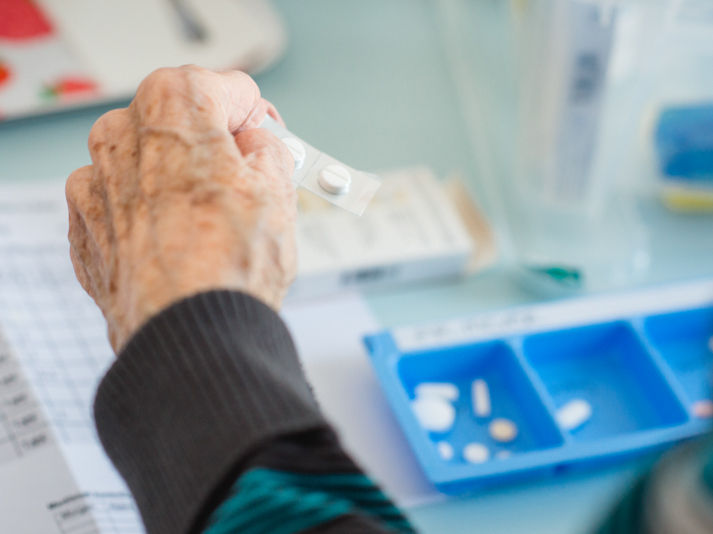Guidelines for thyroid disorders in older people outdated
Advertisement
The standard treatment for a mildly underactive thyroid gland is thyroid hormone substitution with tablets. The results of the yet largest study published in The New England Journal of Medicine, however, question the benefits of this practice.

Not every tablet holds a benefit for older patients (Symbolic photography).
Inselspital, Bern University Hospital
A mildly underactive thyroid gland (subclinical hypothyroidism) is a common condition in older age, affecting up to one-in-ten older men and women. According to current guidelines, nine of every ten women with the condition could receive thyroid hormone tablets, typically levothyroxine, which has become the most prescribed drug in the USA and the third most prescribed drug in the UK. The large 5-year European study TRUST now shows that the common treatment of this condition with levothyroxine provides no apparent benefits, calling for a re-evaluation of the treatment.
European largest clinical trial for mildly underactive thyroid
A team of researchers from five European Universities have followed 737 older adults with subclinical hypothyroidism to determine if levothyroxine provides them clinical benefits. An underactive thyroid has been linked to various health problems, such as tiredness, circulatory problems, muscle weakness, slowed speed of thinking, and increased blood pressure and weight, but it is also argued that the condition causes little harm. Half of the participants were allocated to a placebo and half to levothyroxine, and followed up for two years. The study found that levothyroxine tablets did effectively restore a normal balance of thyroid function, but did not provide any symptomatic benefits. There was also no improvement of muscle strength, speed of thinking or any effect on body weight or blood pressure.
No worthwhile benefits from levothyroxine
Based on these findings the study team concluded that there is now convincing evidence that older people with a mildly underactive thyroid do not get worthwhile benefits from levothyroxine treatment. Prof. Dr.med. Nicolas Rodondi of Inselspital, Bern University Hospital, and University of Bern, who led the study in Switzerland, concludes: “For more than 20 years we were lacking good evidence about screening and treatment of mildly underactive thyroid, although it is commonly treated in clinical practice. Our aim was to definitively clarify the impact of this screening and the efficacy of subsequent therapy among older adults.Our study that is five times larger than previous ones shows the therapy to provide no apparent benefits for older adults and should therefore no longer be started routinely for this condition.”

























































